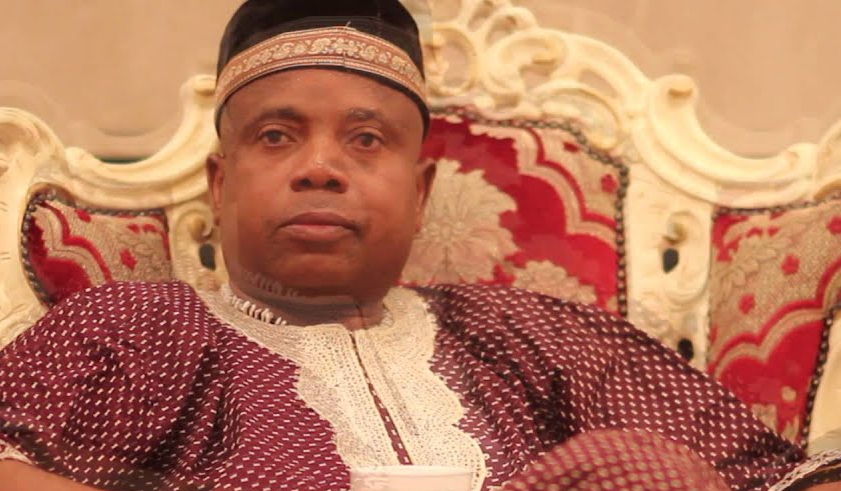By Eyaaz
Copyright mg

The United Nations’ sustainable development goals (SDGs) are 17 interconnected goals designed to address the world’s most pressing problems by 2030. Each goal is supported by specific targets and indicators, providing a measurable framework for progress.
The SDGs apply to all countries regardless of income level, emphasise the interconnectedness of global issues and thus require holistic solutions.
Technology is pivotal in advancing the SDGs by providing innovative solutions to global problems. For instance, renewable energy technologies such as solar panels, wind turbines and hydropower systems are critical for achieving affordable and clean energy and combating climate change. Similarly, advancements in water purification and sanitation systems directly address water and sanitation by ensuring access to safe drinking water and reducing waterborne diseases.
Deploying Artificial Intelligence to Achieve the UN Sustainable Development Goals: Enablers, Drivers and Strategic Framework, which I wrote, considers the use of AI to accelerate progress towards achieving the SDGs. The transformative nature of AI — computer systems that can perform tasks typically requiring human intelligence such as visual perception, speech recognition, decision-making and language translation — is explained.
AI systems have the potential to provide innovative solutions to complex global problems that impede the attainment of SDGs worldwide.
For instance, AI-driven data analysis and predictive modelling can enhance decision-making processes across multiple SDG targets. In agriculture, AI systems can optimise crop yields by analysing weather patterns, soil quality and pest activity, supporting the fight against hunger.
These systems can guide farmers on when and where to plant crops, helping to reduce resource waste and adapt to climate-induced agricultural issues. Similarly, AI-powered tools in supply chain management can minimise food loss and waste, ensuring that resources are used efficiently and equitably.
Furthermore, AI can advance climate crisis mitigation by supporting climate modelling and environmental monitoring.
AI-powered tools can analyse satellite imagery to monitor deforestation, track changes in land use and measure carbon emissions.
These insights help policymakers implement targeted conservation efforts and design effective climate adaptation strategies.
Additionally, AI can optimise energy use by managing power grids, improving energy storage and integrating renewable energy sources such as wind and solar into the grid.
By reducing energy waste and emissions, AI technologies contribute to the global transition towards a low-carbon economy.
For quality education, AI-powered adaptive learning platforms provide personalised education tailored to individual learning styles and needs, making quality education accessible to marginalised communities.
AI also plays a critical role in improving healthcare systems, contributing to good health and well-being.
AI also supports gender equality by identifying and addressing systemic biases in hiring processes and enabling women entrepreneurs to access financial services through AI-based credit scoring.
Moreover, AI-driven financial inclusion initiatives, such as mobile banking and digital payment systems, empower underserved populations, advancing decent work and economic growth.
By using AI thoughtfully and equitably, governments and organisations can harness its transformative power to address global inequalities and achieve the SDGs.
The book addresses AI safety, regulation, legislation, governance, risk mitigation and carbon footprint while reviewing the AI semiconductor industry. It also assesses AI’s potential negative effects on the SDGs and examines the problems of AI deployment. It emphasises aligning all national, regional or continental plans with the AI-enabled SDG agenda.
Further, it is essential to develop an AI ecosystem; embrace AI users’ voices and insights; champion participatory approaches to AI design and deployment; incorporate diverse perspectives and adopt feedback and iterative improvement mechanisms.
There is efficacy in leveraging AI-enabled leapfrogging for SDGs, where emerging and least industrialised countries can bypass traditional stages of technological evolution and move directly to more advanced cutting-edge AI solutions.
Global governance for AI is vital. The key recommendations of the UN secretary general’s 2024 AI Advisory Final Report are discussed. The strengths and flaws of this report are presented and explained.
The principles of AI regulation/legislation and AI risk verticals are presented, while exemplary cases of AI legislation, such as the 2024 European Union AI Act, are reviewed, drawing lessons for other jurisdictions. The limitations of regulations and legislation as AI management tools are articulated, while the sociology of AI policy and adoption is also investigated.
While the book emphasises the need to embrace a broad range of enabling technologies, with a special focus on AI, it acknowledges the risks of technology-driven issues such as digital imperialism and data colonialism, particularly in emerging and least industrialised economies.
A case is made for decoloniality in AI on the SDG journey — a theoretical and practical framework aimed at dismantling the structures, knowledge systems, and power dynamics established during and after colonial rule and likely to influence the essence and content of AI systems.
Furthermore, there is a premium on democratising AI in pursuit of the SDGs — making AI technologies, tools, knowledge and opportunities accessible to a broader range of people, communities, organisations, countries, and beyond a privileged few individuals, institutions and economies.
A key contribution of the book to AI adoption and thought leadership is the Strategic Framework for AI Deployment, which has six distinct but related components: vision, strategy, policy, governance, legislation and regulations, and an implementation matrix (inclusive of monitoring, measurement, evaluation and feedback).
In pursuit of the SDGs, every continent, regional bloc of states, country, organisation or community must develop and adopt such a framework, where these structures dynamically influence each other. In this context, the role of regional and continental integration and political unity is articulated.
The African Union’s 2024 Continental AI Strategy is reviewed. Its strengths and weaknesses are discussed.
The book provides details on deploying AI to achieve all 17 SDGs. Each goal is examined, its challenges are assessed, and detailed proposals for AI interventions to facilitate attainment are posited.
AI adoption issues and ethical considerations specific to the goal are discussed, and policy recommendations are proffered.
The potential future envisioned in the 2030 SDG agenda — a world free from poverty, hunger and environmental degradation — is slowly becoming elusive, if not illusory. That desired future — complete attainment of the SDGs — is not inevitable. It is contingent on immediate and transformative action.
Political and business leaders, policymakers, academics, civil society activists and citizens must reignite momentum towards the SDGs, ensuring that 2030 becomes a milestone of achievement rather than a moment of regret.
Global cooperation, regional and continental integration, moving up global value chains, inclusive economic transformation, addressing the climate crisis, and use of advanced technology (in particular AI) can play a significant role in the arduous journey to 2030.
Of course, there is the danger that AI will widen global inequality. Left unchecked, AI can intensify global disparities by consolidating power and wealth in affluent nations while exploiting labour and resources in emerging and least industrialised countries.
There is a real possibility that AI will entrench existing inequities, leading to heightened political instability, environmental degradation and cultural dominance by a select few.
This book seeks to mitigate these challenges. AI must serve as a transformative force for the collective good, benefiting the entire planet and all its inhabitants in an equitable manner.
Harnessing this transformative technology to advance the SDGs in every country offers a strategic and practical starting point.
UN secretary general António Guterres, is right: “We must never allow AI to stand for advancing inequality.”
Professor Arthur GO Mutambara is a director at the University of Johannesburg’s Institute for the Future of Knowledge, where he is also head of the Decentralised Artificial Intelligence and Control Systems Research Group. He is editor-in-chief of the Journal of Foresight and Thought Leadership.



